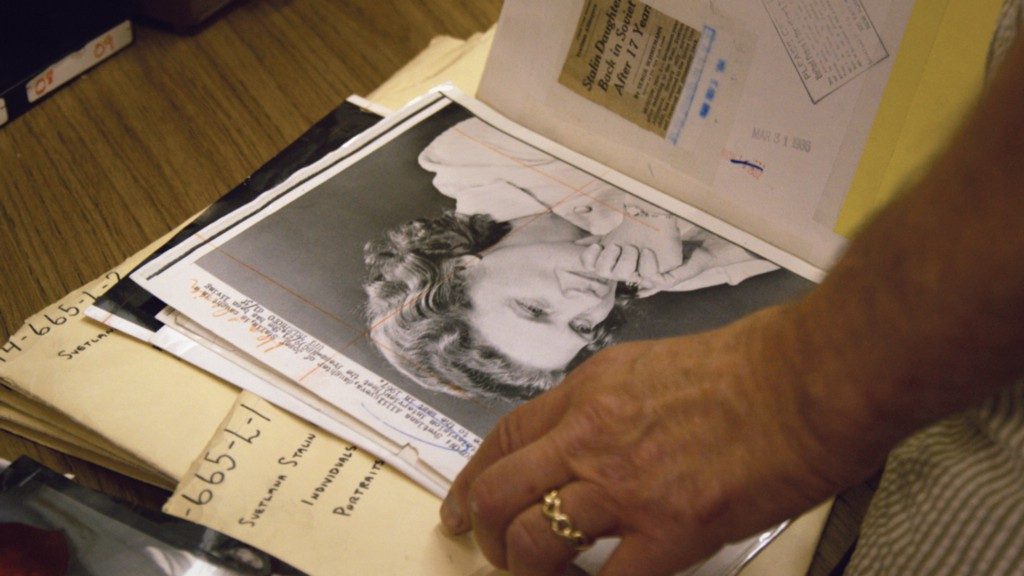Vanessa Gould is a filmmaker, editor and camera operator working in Brooklyn. Her film “Between The Folds” premiered on PBS’s “Independent Lens” in December 2009 and was re-broadcast the following season. In 2010, it received a Peabody Award. “Between The Folds” has been translated into more than ten languages and broadcast in dozens of countries. It screened at more than forty-five international film festivals and was recognized with numerous audience and jury awards. (Press materials)
“Obit” will premiere at the 2016 Tribeca Film Festival on April 17.
W&H: Describe the film for us in your own words.
VG: “Obit” is a look at the editorial obituaries at the New York Times. With the experiences of the writers and the editors as our lens, I hope the film also works as a consideration of themes of history, culture and memory.
W&H: What drew you to this story?
VG: In 2010, Eric Joisel, one of the subjects in my last film, “Between The Folds,” passed away at age 54. I didn’t anticipate the concerns that come with the death of an artist. Ideas unfinished. Pieces frozen in time. Singular ambitions and thoughts gone with him.
I was afraid that all we knew of him might disappear with time. And so I wrote to most of the big English language newspapers around the world and informed them of his death. About a week later, the first and only paper that contacted me was The New York Times and they ran a fitting obituary on him, along with photos of him and his work.
It recognized the unique value of the things to which he was so devoted. It logged him into the historical record. Recognition had largely eluded him, and I can’t even begin to think how he’d feel if he had seen it.
This led me to a deep point of curiosity about the cultural, historical and journalistic gravity of obituaries. As I began a new daily ritual of reading The New York Times obits, I soon discovered that nearly every one points to an incredible human story, along with larger contexts of place and time, history and culture.
A few months later, I contacted The New York Times about doing a documentary, and began soon after.
W&H: What do you want people to think about when they are leaving the theater?
VG: That’s a tough question. Anything they think about when leaving the theater seems good to me. That’s sort of the point — to open up whatever might be meaningful individually about life and death. But I suppose questions about the longer view on history [are posed,] and I hope ideas about the ways culture and memory are shaped come across.
W&H: What was the biggest challenge in making the film?
VG: The age-old challenge of financing.
W&H: How did you get your film funded? Share some insights into how you got the film made.
VG: Just over half of our total funding came through exceptionally generous private individual donations. We also received generous grants from the New York State Council on the Arts and the Dobkin Family Foundation.
W&H: What’s the biggest misconception about you and your work?
VG: I have no idea!
W&H: What’s the best and worst advice you’ve received?
VG: Best advice I’ve received: Making a film gets really complicated and messy. Always trust and try to return to the core task of filmmaking when you start to get lost in everything else. Seems obvious, but it’s hard and essential.
I’m not sure about the worst advice I’ve received. Probably didn’t commit it to memory.
W&H: What advice do you have for other female directors?
VG: Be fierce, and tell the stories you see exactly how you see and feel them.
W&H: Name your favorite woman-directed film and why.
VG: It’s hard to name a single one. “Obit’s” editor, Kristin Bye, suggested I watch Agnès Varda’s “The Gleaners and I” when she and I were first talking about ways we might think about “Obit.”
It’s tangential at best, but I think about that film all the time. It’s a gorgeous, gentle, profoundly human film.







